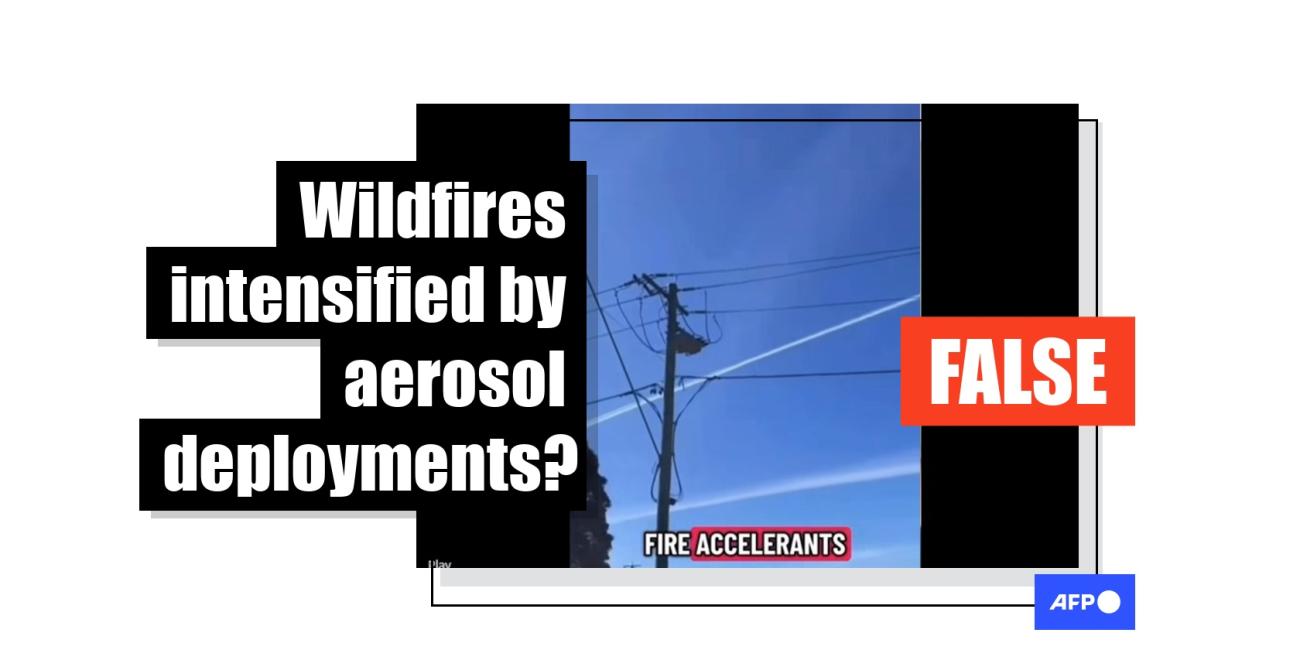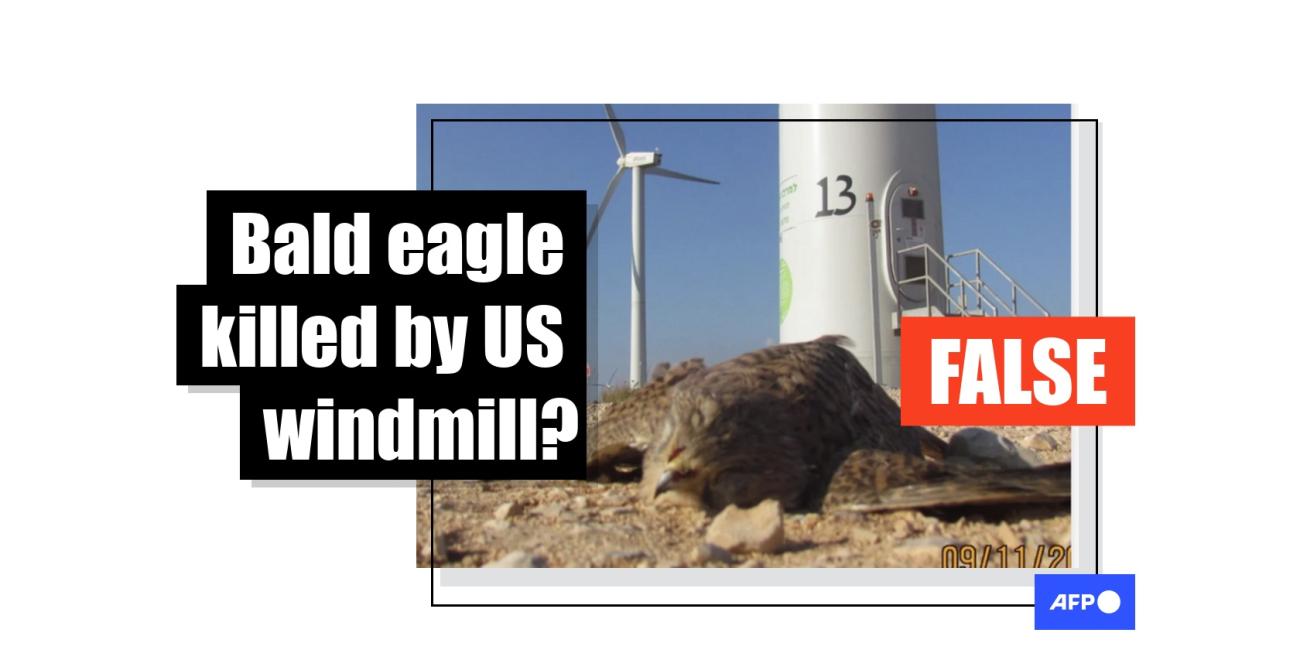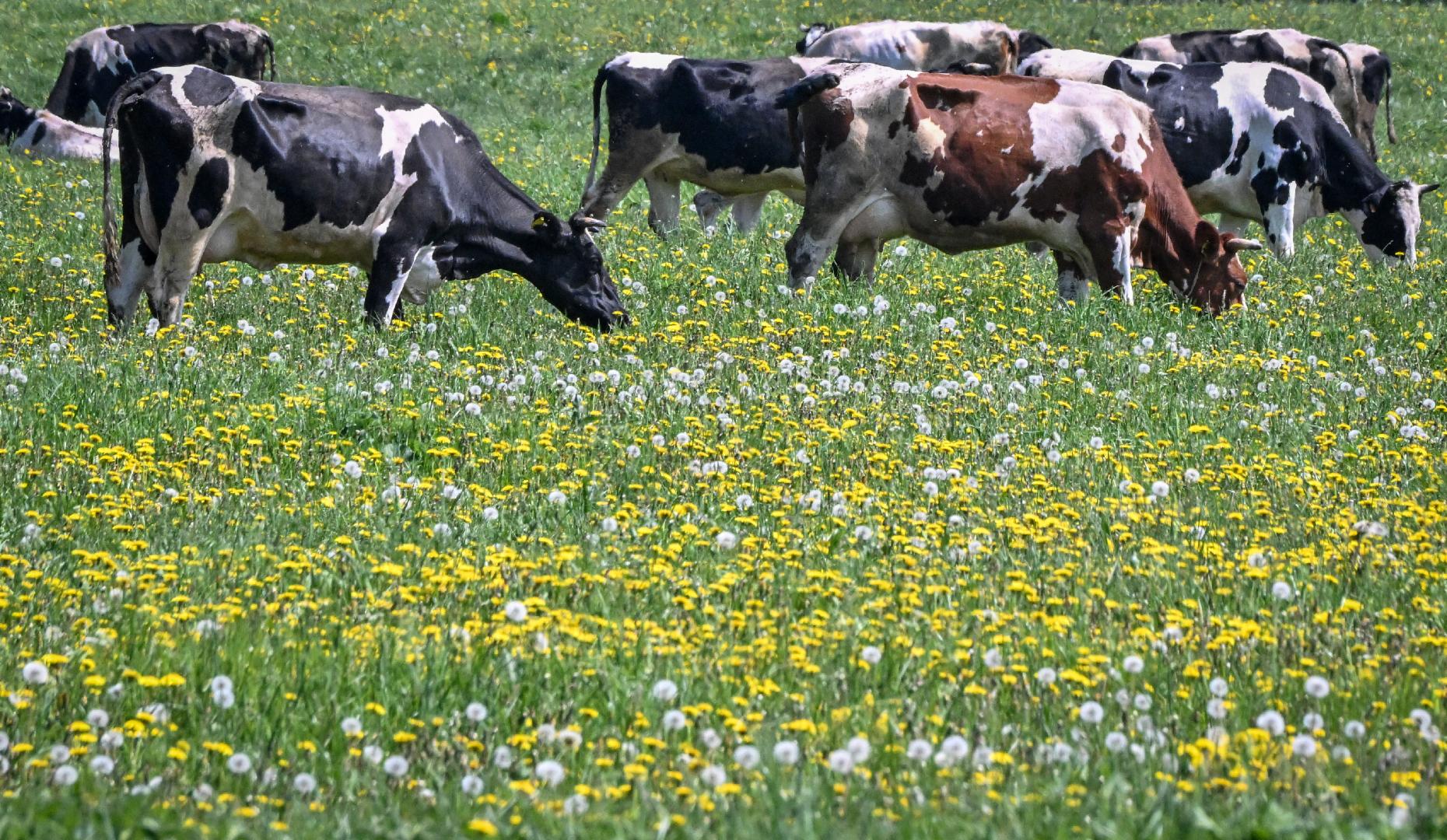
Article misleads on effect of cow emissions on global warming
- This article is more than three years old.
- Published on June 14, 2022 at 21:46
- 5 min read
- By Roland LLOYD PARRY, AFP USA
"The emissions of cows are part of a closed and self-completing carbon cycle in the atmosphere," says a June 5, 2022 Facebook post titled "The War on Beef." "The believer/
The text is part of an article from a website called Farmers Against Misinformation. It implies cows have a negligible effect on the climate since no new carbon is created when they emit gases.
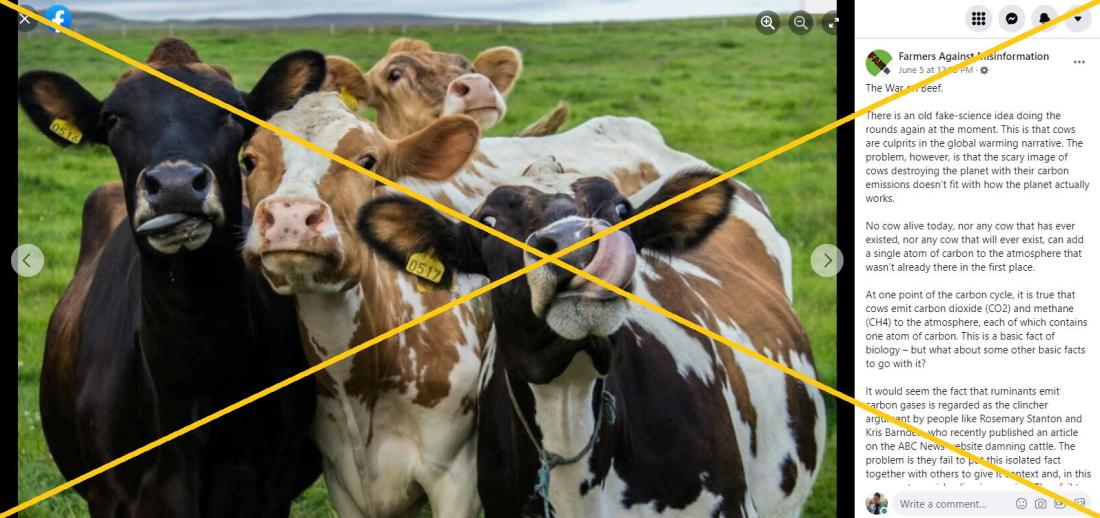
However, the claim ignores the planet-warming effect of cows' primary emission: methane, a potent greenhouse gas.
"Cows convert carbon dioxide into methane, which is a much more powerful greenhouse gas than carbon dioxide for as long as it remains in the atmosphere," said Myles Allen, a professor of geosystem science at Oxford University. "So the fact that the carbon atoms in the methane come from the atmosphere in the first place is entirely irrelevant."
However, while Allen said the "contribution of cows to global warming is indeed well-documented," it is also "very badly misunderstood."
"While there is much that is misleading in this post, I can understand why farmers are frustrated because there is so much equally misleading information out there exaggerating their impact," he told AFP in an email.
Measuring methane's impact
Scientists say methane emissions, as well as other greenhouse gases, must be cut to limit the average rise of global temperatures to 1.5 degrees Celsius -- a threshold for avoiding the worst impacts of climate change. Much of that methane comes from agriculture.
Data compiled by Climate Watch, a platform managed by the World Resources Institute, indicate an estimated 17 percent of the world's greenhouse gas emissions consist of methane. Around 40 percent of human-made methane emissions come from agriculture.
Climate Watch cites data from the United Nations (UN) World Food Programme indicating the principal source of agricultural methane emissions is "enteric fermentation" -- livestock digesting feed.
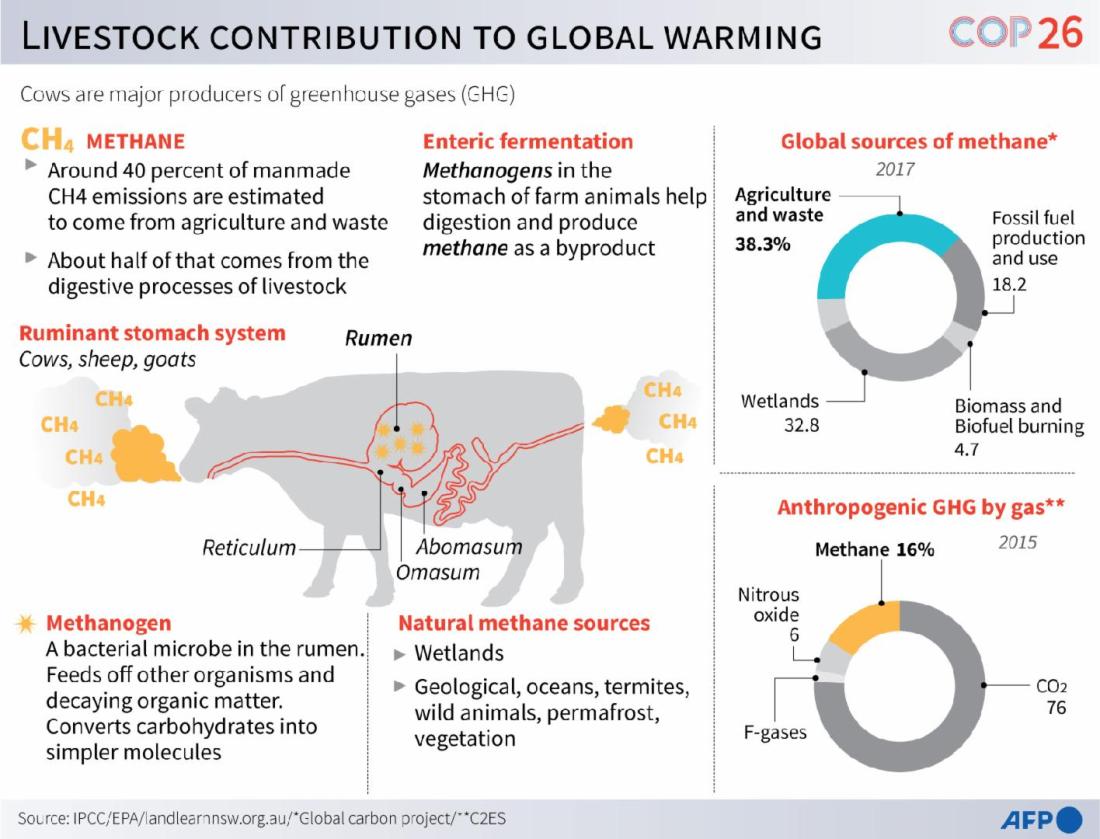
However, measuring methane's contribution to global warming is another matter.
Methane is a more potent gas than carbon dioxide (CO2), but it stays in the atmosphere for a shorter period of time -- about a decade. As the Farmers Against Misinformation article notes, methane breaks down into CO2 and water in the atmosphere.
While scientists agree that methane contributes to global warming, its different behavior and rate of dispersal complicate efforts to calculate methane's overall contribution to global warming in relation to other greenhouse gases.
Methane measurements are often stated as a volume of "carbon dioxide equivalent." This figure incorporates "global warming potential" (GWP), a measure of how much energy one ton of a gas absorbs compared to one ton of CO2. GWP is typically measured over 20 years (GWP20) or 100 years (GWP100).
However, scientists have warned this measure can distort the impact of methane.
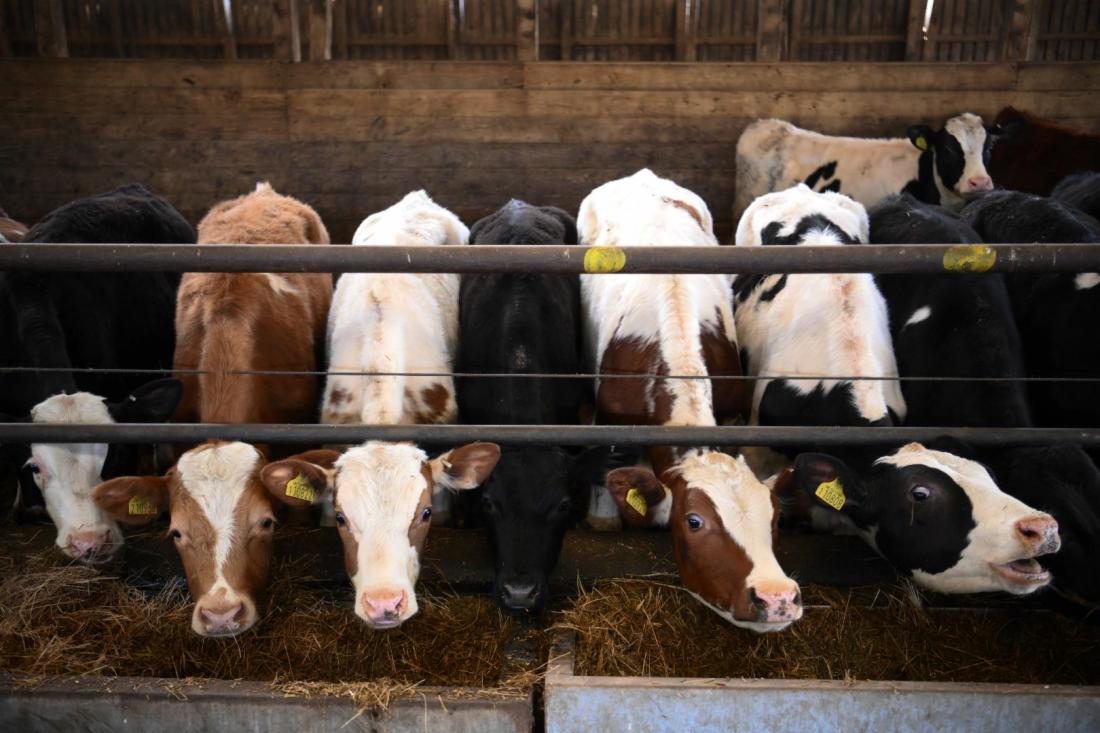
"GWP100 can variously over- or under-state the impact of methane emissions depending on the historic trajectory of these emissions," says one article published by Environmental Research Letters.
This in turn causes misperceptions about the effect of livestock emissions and how to deal with them, Allen said.
Scientists have devised a new calculation method known as GWP*, which takes into account the high impact and fast dispersal of short-lived greenhouse gases such as methane. However, activist group Greenpeace has accused the beef industry lobby of seeking to use GWP* to dodge measures aimed at lowering emissions.
Cutting methane would reduce warming
At last year's UN Climate Change Conference in Glasgow (COP26), countries agreed to cut methane emissions by 30 percent by 2030. However, notable emitters -- including China, Russia, Iran and India -- have not signed on.
Allen, who has co-authored various studies on measuring methane's warming effect, sent AFP graphs from Oxford University's Environmental Change Institute (ECI) that show how reducing agricultural emissions could help limit global warming.
The graphs use data from PRIMAP-hist, a comprehensive dataset on greenhouse gas emissions. They indicate a rise in gas emissions from agriculture since 1850 has seen a corresponding rise in associated warming.
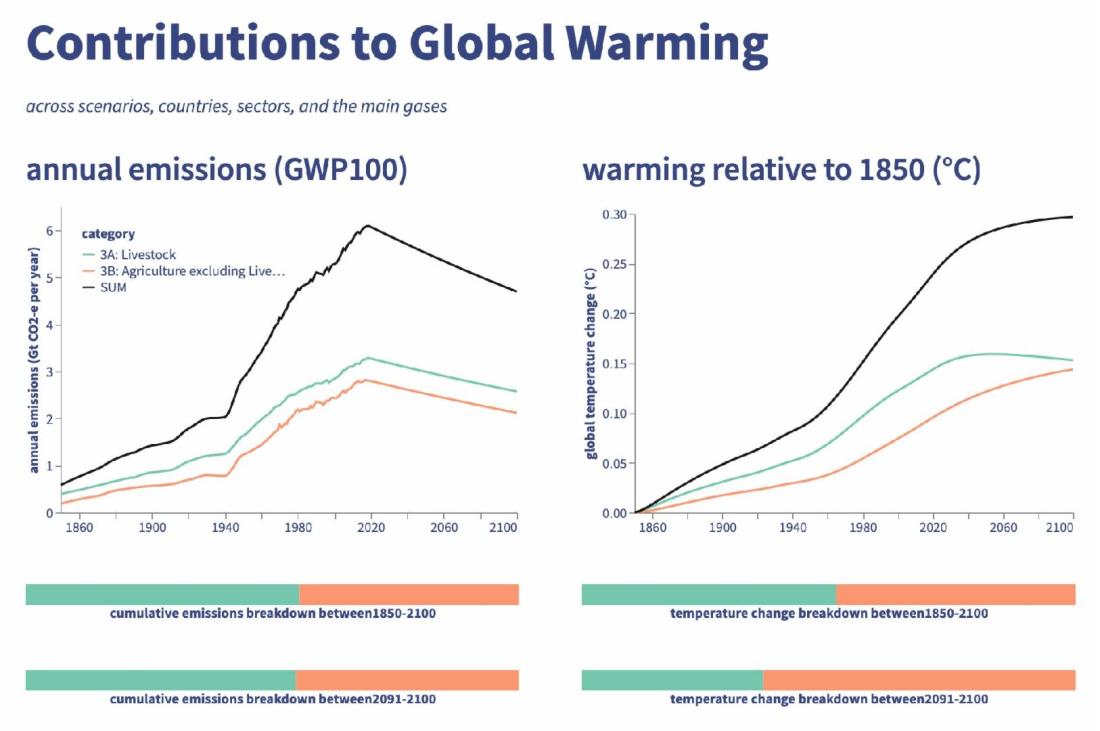
Bars at the bottom-left of the graphs show livestock accounted for about half of the agriculture sector's emissions over the same time period.
"Right now, global livestock numbers and associated methane emissions are going up, causing lots of global warming," Allen said.
However, he said countries "don't need to reduce methane emissions to zero to stop methane causing any further global warming." The ECI graphs, for example, indicate that reducing greenhouse gas emissions from agriculture by 0.3 percent per year would help level off their associated share of global warming.
"It would be enough to start reducing them by around 3 percent per decade, or halving over 200 years," Allen added. "Methane emissions falling faster than 3 percent per decade actually reduce global temperatures."
The UN Environment Programme says scientists are experimenting with alternative feed types and different ways of managing manure to limit methane emissions. A report from the Intergovernmental Panel on Climate Change (IPCC) proposes various mitigation measures, including forms of land and livestock management.
"Agriculture clearly has an important role to play in meeting our climate goals," Allen said. "But as long as we continue to treat methane as 'equivalent' to a certain amount of CO2 when it clearly isn't, farmers will continue to feel unnecessarily threatened and misrepresented."
Copyright © AFP 2017-2026. Any commercial use of this content requires a subscription. Click here to find out more.
Is there content that you would like AFP to fact-check? Get in touch.
Contact us
